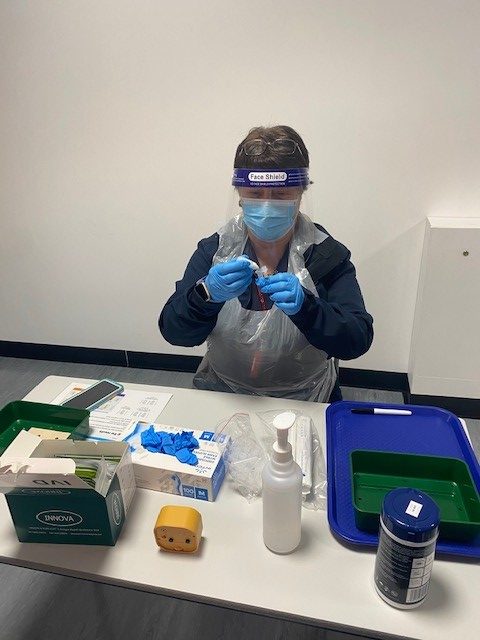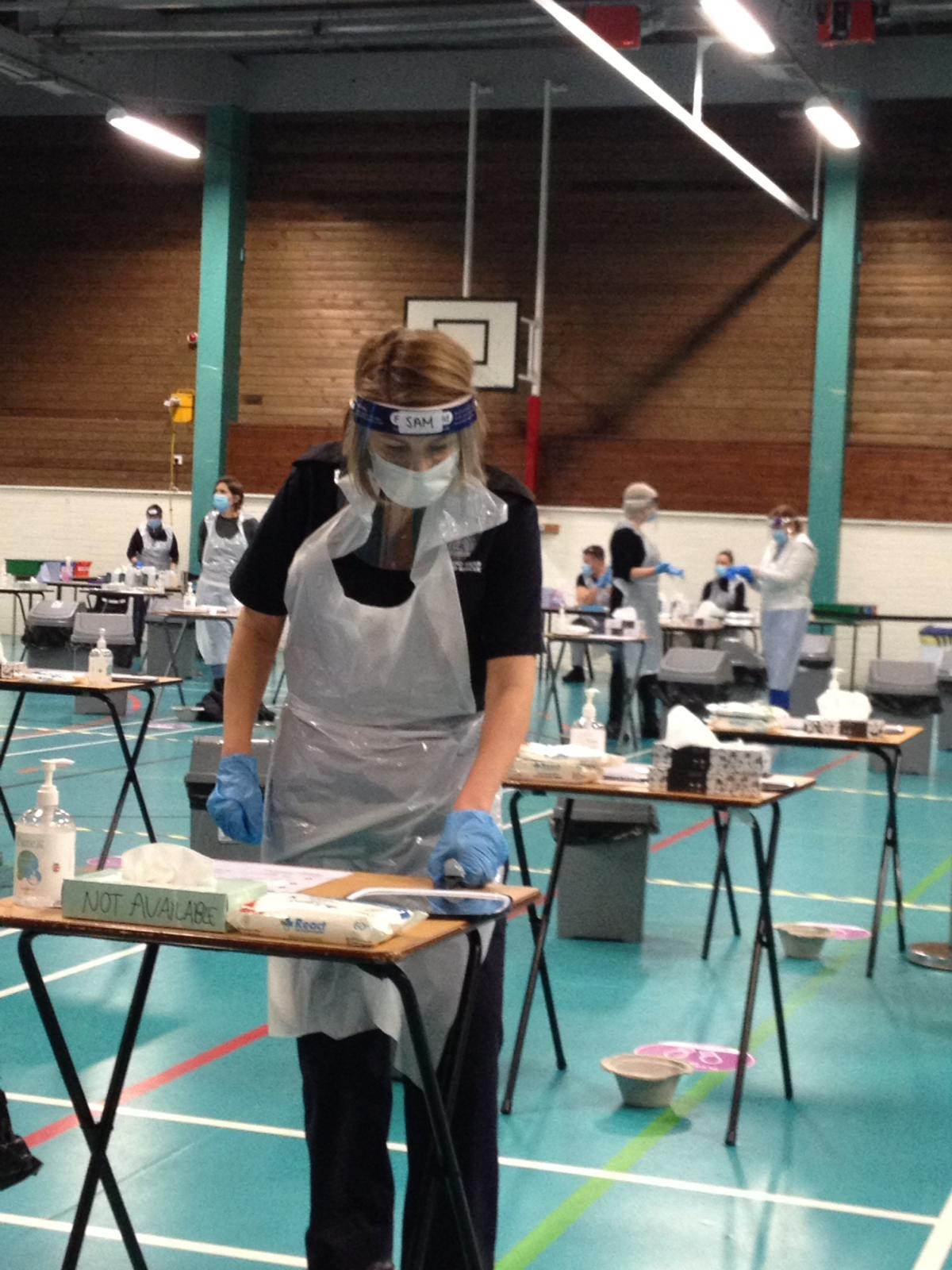news
Over the past two-weeks a group of volunteers from Tyne and Wear Fire and Rescue Service have been working alongside staff at two North Tyneside schools to help roll out their mass Lateral Flow Testing programmes.
Thirteen volunteers from across the fire and rescue service have provided 164 hours administering over 2,000 Lateral Flow Tests to young people from St Thomas More Catholic High School in North Shields and Whitley Bay High School.
“The work of Tyne and Wear Fire and Rescue Service has been great, and it’s no exaggeration to say that we couldn’t have done it without them!” said David Watson, Headteacher at St Thomas More Catholic High School.
Over the two week period of mass testing, St Thomas More Catholic High School aim to carry out around 4,000 tests, meaning the volunteer roles are crucial in supporting the school staff.
Mr Watson continued: “Being able to test the vast majority of our students on their return to school has given an extra layer of reassurance for students, parents and staff; that we would have a good chance of identifying any asymptomatic cases before lessons started in each year group.
“We are incredibly grateful to our partner organisations including the fire service for providing the extra staff that were needed. They have undertaken the role of test processors, which is key to being able to complete the volume of tests in such a short space of time.”
Tyne and Wear Fire and Rescue Service has been playing a major role in the community volunteering programme that is being delivered across the region to help with the fight against the COVID-19 pandemic.
The volunteers have taken on a variety of different roles including Lateral Flow Testing processors, marshals, vaccinators, and resource managers. The locations have included The Nightingale Hospital in Sunderland, Newcastle Racecourse, the Vertu Motors Arena the home of Newcastle Eagles, St Thomas More Catholic High School, and Whitley Bay High School.

John Rossen, Group Manager at Tyne and Wear Fire and Rescue Service, said: “The volunteer programme is at the heart of our mission to deliver community safety to people across the region. The pandemic has been one of the single biggest obstacles facing society in most of our lifetimes, and for the fire and rescue service to try and bring back some kind of normality is a challenge we are excelling to achieve.
“Our staff have risen to the task and are enjoying working alongside the teachers and students in North Tyneside. COVID-19 is a plight that all emergency service crews are tackling head-on as we aim to strive towards reaching the light at the end of the tunnel.”
Steve Wilson, Headteacher of Whitley Bay High School, said: “We were delighted to welcome our students back into school, which began with our COVID-19 mass testing programme, with students taking three lateral flow tests, across a seven-day period.
“These tests were critical to successfully re-opening the school, enabling us to identify asymptomatic cases of COVID-19 within the student community, as well as providing reassurance to staff, students and parents following this latest period of national lockdown.”
Whitley Bay High School has completed more than 5,000 tests involving over 1,600 students since March 4. This mammoth task has been successfully completed due to the overwhelming support of a team of over 70 volunteers made up of parents, North Tyneside Council staff, and members of the Tyne and Wear Fire and Rescue Service.
Mr Wilson continued: “The volunteers have taken on the roles of test assistant and test processor. This has involved supporting students as they conduct their tests and offering guidance and assistance as necessary. They then received the test swab and carried out the analysis to confirm the test result.
“Whitley Bay High School is extremely grateful for the support from Tyne and Wear Fire and Rescue Service, and all those that have helped with our testing programme.”
Wendy Burke, North Tyneside Director of Public Health: “Up to a third of people with COVID-19 may not display symptoms but are still infectious and can spread the virus – this testing will help to prevent outbreaks within schools and the wider community.
“It’s important that everyone remembers that even if someone tests negative, they continue to follow public health and government advice.”









